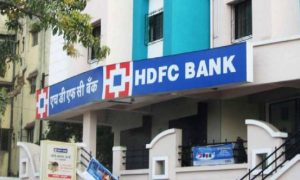The government on Tuesday notified extension of payment deadline for the direct tax legacy dispute resolution scheme (Vivad se Vishwas) by three months till March 31 next year. The deadline for making declarations under the scheme will still be December 31 as stated earlier.
The Direct Tax Vivad se Vishwas Act, 2020, was enacted earlier this year with the government saying it aimed to reduce pending income tax litigation, generate timely revenue for the government and benefit taxpayers by providing them peace of mind, certainty and savings on account of time and resources that would otherwise be spent on the long-drawn and vexatious litigation process.
The deadline for the scheme is an incentive for taxpayers as those making declarations before it will have to pay at concessional rates. But the scheme will continue to be operative even beyond December 31.
The government said that finance secretary Ajay Bhushan Pandey reviewed the progress made so far by the income-tax department on the scheme. The review meeting was attended via video conferencing by CBDT chairman and board members along with all principal chief commissioners of the department across the country.
Earlier this year the government has said that 35,074 direct tax-related disputes have opted for the scheme as on September 8. It’s estimated that nearly 6 lakh such cases are pending in different forums including commissioner of appeals, tribunals, high courts and the Supreme Court.
The government is hoping that a substantial portion of over Rs 10 lakh crore in revenue stuck in these cases can be unlocked through the scheme as it offers exemption from payment of penalty and interest on the disputed tax amount. The penalty and interest often amount to twice as much as the original tax demand.
In case the appeal is filed by the department, the taxpayers choosing to settle dispute and make payment before December 31 will only have to pay half the disputed amount while penalty and interest would be waived off. However, if the case is related to dispute of penalty and interest then only 12.5% of the amount is payable.
If a taxpayer makes the payment after the deadline, the scheme will still be operational but its terms would be less attractive. For instance, a taxpayers will pay 55% of the disputed amount even though penalty an interest would still be waived off. If dispute pertains to penalty and interest itself then payment for settlement is pegged at 15%.
The terms of the scheme change for appeals that are filed by taxpayers and also for cases involving search and seizure. Some cases have been excluded from the scheme. For instance, search cases where disputed tax is more than Rs 5 crore, prosecution cases under the Income-tax Act or IPC filed by the department, cases relating to undisclosed foreign income and assets, and cases completed on the basis of information from foreign countries, among others.





































